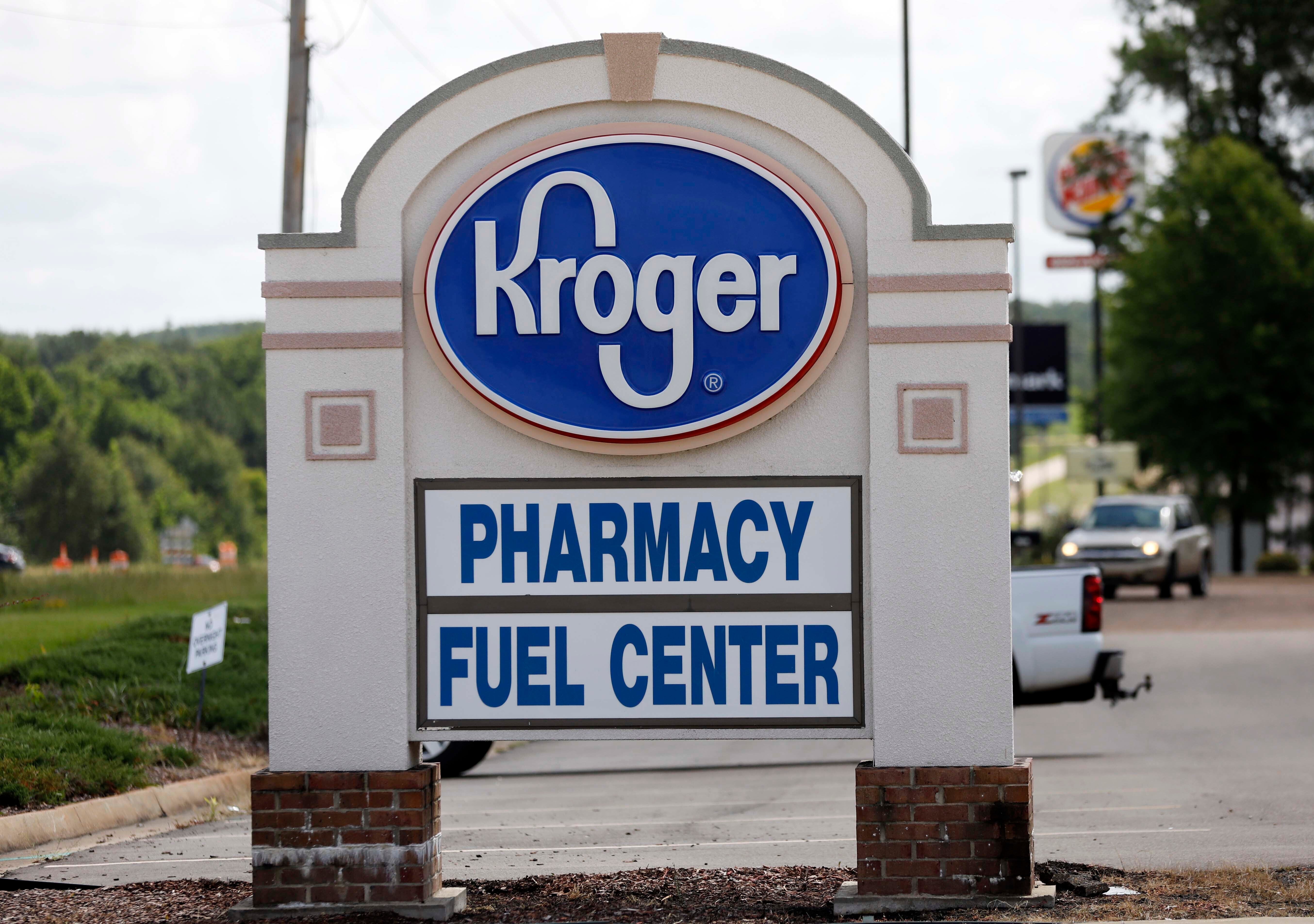Kroger agrees to pay up to $1.4 billion to settle opioid lawsuits
The Kroger Co. has agreed to pay up to $1.4 billion to settle lawsuits over the toll of opioids

Your support helps us to tell the story
From reproductive rights to climate change to Big Tech, The Independent is on the ground when the story is developing. Whether it's investigating the financials of Elon Musk's pro-Trump PAC or producing our latest documentary, 'The A Word', which shines a light on the American women fighting for reproductive rights, we know how important it is to parse out the facts from the messaging.
At such a critical moment in US history, we need reporters on the ground. Your donation allows us to keep sending journalists to speak to both sides of the story.
The Independent is trusted by Americans across the entire political spectrum. And unlike many other quality news outlets, we choose not to lock Americans out of our reporting and analysis with paywalls. We believe quality journalism should be available to everyone, paid for by those who can afford it.
Your support makes all the difference.One of the nation's largest grocery chains is the latest company to agree to settle lawsuits over the U.S. opioid crisis.
In a deal announced Friday, the Kroger Co. would pay up to $1.4 billion over 11 years. The amount includes up to $1.2 billion for state and local governments where it operates, $36 million to Native American tribes and about $177 million to cover lawyers' fees and costs.
Kroger currently has stores in 35 states — virtually everywhere save the Northeast, the northern plains and Hawaii. Thirty-three states would be eligible for money in the deal. The company previously announced settlements with New Mexico and West Virginia.
Over the past eight years, prescription drug manufacturers, wholesalers, consultants and pharmacies have proposed or finalized opioid settlements totaling more than $50 billion, including at least 12 others worth more than $1 billion. The U.S. Supreme Court is set to hear arguments later this year on whether one of the larger settlements, involving OxyContin maker Purdue Pharma, is legal.
Most of the settlement money is to be used to address an overdose epidemic linked to more than 80,000 deaths a year in the U.S. in recent years, with most of the latest deaths connected to illicit synthetic drugs such as fentanyl rather than prescription painkillers.
Still, Jayne Conroy, a lead lawyer for the governments suing the companies, told The Associated Press in an interview Friday that it makes sense for players in the prescription drug industry to have a major role in funding solutions to the crisis.
“It really isn’t a different problem,” she said. “The problem is the massive amount of addiction. That addiction stems from the massive amount of prescription drugs.”
The companies have also agreed to change their business practices regarding powerful prescription painkillers, consenting to restrictions on marketing and using data to catch overprescribing. Conroy said those noneconomic terms for Kroger have not been finalized, but they'll look like what other companies have agreed to.
Kroger said it intends to finalize its deal in time to make initial payments in December.
The company would not admit wrongdoing or liability as part of the deal, which is called in a statement a milestone in efforts to resolve opioid lawsuits. “Kroger has long served as a leader in combatting opioid abuse and remains committed to patient safety,” the company said.
While most of the biggest players have settled, the opioid litigation is continuing. Cases are being prepared for trial involving the supermarket chains Publix and Albertsons, the latter of which is attempting to merge with Kroger. Pharmacy benefit managers such as Express Scripts and OptumRx also face opioid claims from governments.